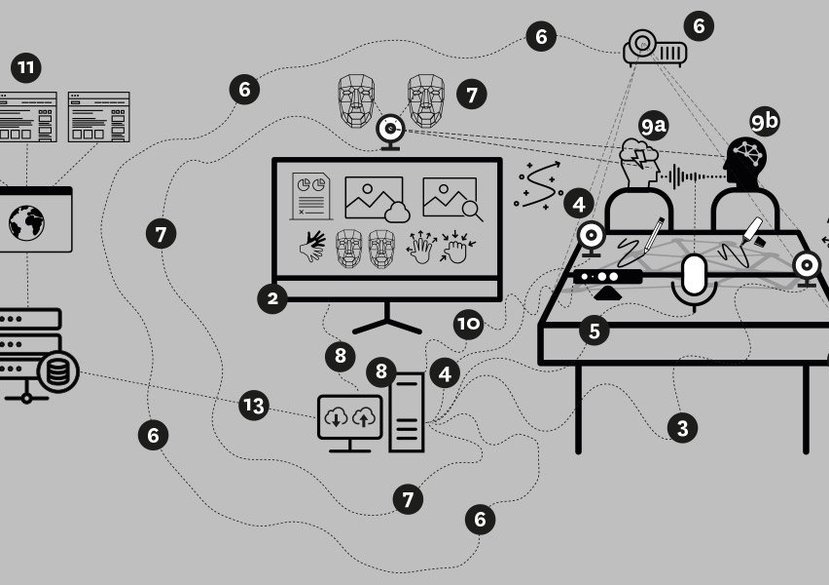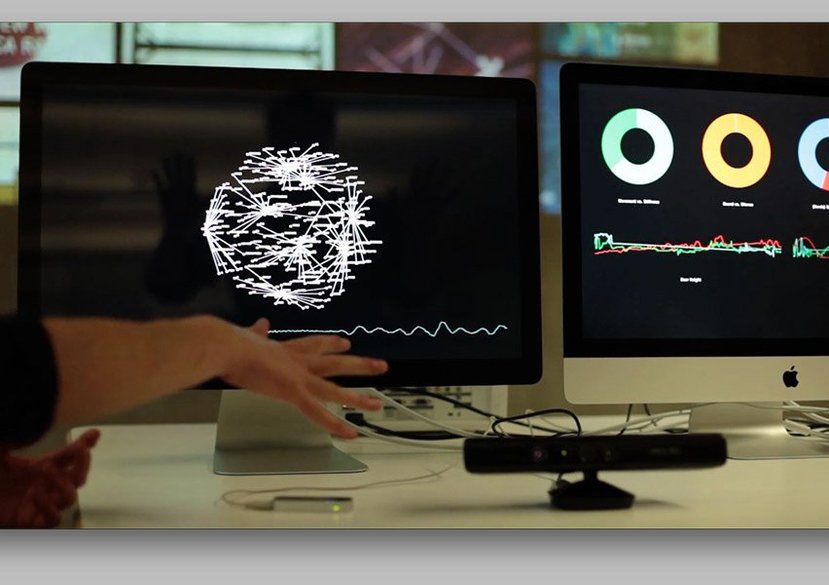
Augmented Design Tools, Social & Distributed Ideation
Ben’s research explores experimental tools for supporting design work amongst people. Specifically, through speculative prototyping, his research develops a discussion of the potentials of experimental digital tools in the context of design ideation. In evaluating the potential of ad-hoc meshes of platforms and services assembled by design practitioners specifically to support ideation Ben’s research develops ideas of collaborative and augmented, design practice.
Theoretically, Ben’s research explores the intersection of ideas such as strategic design (Hill, D) and relational design (Blauvelt, A), (Bourriaud, N) in an applied context. For example, ideas informing pilot studies propose that enacting strategic design requires the augmentation of networked information systems to overcome the increasing effects of knowledge silos and specialisation. A conceptual framework of relational design helps to establish the ontological basis for experimental algorithmic systems and tools.
Ben’s research specifically uses multimodality to examine the interaction of people and technology from a communication perspective. Furthermore, Ben’s research also examines the historical context for computational thinking around augmentation, examining the birth of these ideas in computer science in Douglas Engelbart’s famous paper ‘Augmenting Human Intellect: A Conceptual Framework’ and exploring ideas from communication theorists such as Marshal McLuhan. Specifically, the ideas embodied in Father John Culkin’s McLuhanesque phrase “We Shape Our Tools, and Then Our Tools Shape Us” greatly informs the macro context of Ben’s research.
Ben’s research examines how experimental digital tools for design ideation offer insight into how the specific media effects of these tools will change both the understanding and practice of design.
Key details
School, Centre or Area
Gallery
More about Benjamin
Biography
Ben Stopher is a designer and academic with extensive experience as a practitioner and creative consultant in communication and digital design. As an academic Ben is Programme Director: Interactive & Visual Communication, London College of Communication UAL. As a researcher he is interested in how global digital culture shapes design practice and his PhD research explores models of distributed and augmented ideation through speculative prototypes and user research.
As part of the organising team in 2013 and 2014 Ben was responsible for London’s first maker faire and also chaired a panel at the Victoria & Albert Museum drawing on this experience and exploring design education and maker culture.
Ben is creative director and editor of the annual publication Tangible Evidence. The second edition includes an exploration of the logic autonomous weapons in the age of the smart city by the research consultancy Strange Telemetry.
In 2014 Ben was invited by the British Council to deliver two-week data visualisation residency and workshop in Dubai with staff and students from Zayed University.

